Live Reporting
- Libya's Centre for Disease Control has announced the North African country’s first confirmed case of coronavirus.This comes after both the internationally-recognised government in Tripoli and the rival administration in the east of the country imposed strict travel measures, shutting their air space and land borders last week.Libya has been torn by conflict since Nato-backed forces overthrew long-serving ruler Muammar Gaddafi in 2011.
- Remember the Diamond Princess? That's the cruise ship in Japan which at one time had the biggest coronavirus cluster outside China.The Japanese city of Yokohama on Wednesday said the cruise ship would leave the port later today.In early February, the vessel was quarantined in Yokohama and remained on lockdown for nearly a month. In the end, more than 700 of the 3,711 passengers and crew were infected, and at least 20 of those have died.Since then, a number of cruise ships around the world have had coronavirus infections or been blocked from ports.The latest cruise ship drama is the Ruby Princess - which was allowed to dock in Australia and disembark its passengers and crew - more than 130 of whom have since been confirmed positive.
- As India joins several other countries around the world in imposing a total lockdown, here in Singapore the government has been taking a more delicate approach.We're seeing a second spike in cases caused by returning residents infected with the virus, and in recent days authorities have swiftly and progressively introduced social distancing measures.The latest round was announced last night - all bars, nightclubs, cinemas, theatres and tuition centres must close, religious services are suspended, and people cannot meet in groups larger than 10. But schools remain open, as do malls, shops and restaurants.You could call it a surgical knife "lockdown", where the government methodically carves out areas of public life to shut down, while still maintaining some semblance of normality.Singaporeans for the most part have calmly complied, even as day by day our lives are becoming increasingly restricted.But don't call it an actual lockdown - at least to the leaders' faces. In a press briefing last night, the minister overseeing the government's coronavirus taskforce Lawrence Wong rejected suggestions that Singapore was entering a lockdown.He said the term "means different things to different people", and their approach was to respond in a targeted fashion to different risks.
- Following the Ruby Princess debacle in Sydney, Western Australia has effectively banned cruise ships from docking in Perth.Eight hundred Australian passengers on cruise liner Vasco de Gama, due to arrive on Friday, will now be quarantined on nearby Rottnest Island - best known as home to the quokka, a famously cute marsupial.Foreign passengers, however, will have to stay on board until they can be flown out directly, said Premier Mark McGowan.The state has also blocked two other cruise ships from docking. The Magnifica and Artana have both reported unwell passengers on board.
- Prime Minister Narendra Modi's announcement on Tuesday night that India would go into a 21-day lockdown has sparked a flurry of tweets - largely in support of the move.India's cricket captain Virat Kohli was just one of several celebrities asking Indians to listen to the prime minister and stay home.Major cities in the country, including the national capital, Delhi, and financial hub, Mumbai, had already been under similar restrictions.So some Indians seem to be taking it in their stride - at least on social.
- It seemed inevitable that the Tokyo Olympics would be postponed but both the Japanese organisers and the International Olympic Committee (IOC) had long been reluctant to do so - hoping that somehow by July the situation would be better.But on Tuesday, the Games were finally called off for this year and postponed until 2021.The news has been overwhelmingly welcomed by individual athletes and national sports bodies - who had been urging the IOC for weeks to make that call.Heptathlete and world champion Katarina Johnson-Thompson said it was “heartbreaking”, while Olympic track cycling champion Elinor Barker has been left “devastated”.But they all agree it is the right decision.
- It's one of the most instinctual things to do - and also something you absolutely shouldn't be doing right now. Here's a video on why we love to touch our faces, and how we can overcome that urge.
Video content
- As we've been reporting, some Indians rushed to get supplies ahead of a full 21-day lockdown. We've seen similar scenes in several other countries where shop shelves have been emptied and long lines formed.Watch how it all played out in various cities across India.
Video content
- China's Hubei province is lifting all travel restrictions in and out today.This doesn't apply to the capital Wuhan - where the outbreak began- which will only ease its restrictions beginning on 8 April.Meanwhile social distancing is continuing to be enforced with employees at the Dongfeng Fengshen plant in Wuhan having to eat their lunch while sat two metres away from each.
- Three sailors on board aircraft carrier USS Theodore Roosevelt in the Philippine Sea have now tested positive for the virus.A US defence official told me all staff who were in close contact with the three sailors have been identified and are now being tested for the coronavirus.This is the first known case of the virus on board a US military ship at sea.The official wouldn’t disclose the number of people who had been placed in quarantine but did say the warship has around 5,000 people on board.The three sailors are due to be evacuated from the ship by helicopter to a Department of Defence hospital in the Pacific.The official confirmed that the facility isn’t in the Philippines.Earlier this month the warship docked in Da Nang, Vietnam, and the sailors were allowed to go ashore, although it hasn’t been confirmed where they contracted the virus.
- An 18-year-old with an underlying health condition in the UK has now died of the virus.But what are the risks to younger people? Here's a quick glance at the affect the virus has on different age groups:
- I live in Lajpat Nagar, one of the busiest and most bustling neighbourhoods in south Delhi.On any given day, its roads are filled with cars, cycle rickshaws and people rushing around - mostly heading to its famous street market, where you can buy everything from dry fruits to wedding wear.But today, everything is eerily silent.On the way to my tiny neighbourhood grocery store, I only encounter a few street dogs who seem very pleased to have the roads to themselves.The shop is open and there are only a few people coming in, but the owner tells me that it was pandemonium last night. People from all over the neighbourhood had rushed in to buy staples like milk as soon as the Prime Minister's speech had ended.He is not sure if there will be a second rush a little later in the morning. It's very quiet now, but that could well just be the calm before the storm.
- The former chief minister of Indian-administered Kashmir, has attempted to lighten the mood at his own expense.He was among thousands of local leaders put under house arrest a day before the disputed region was stripped of its semi-autonomous status on 5 August.He spent nearly eight months under house arrest.
- Foreign ministers from the G7 group of leading industrial nations will discuss the coronavirus pandemic in a video conference later on Wednesday.UK Foreign Secretary Dominic Raab is expected to push for more co-ordinated action to find a vaccine and to help repatriate tourists stranded by travel restrictions.The meeting had been due to be held in the US city of Pittsburgh but was cancelled as countries restricted travel to combat the spread of the virus.On Thursday, leaders from the wider G20 group of nations will hold their own video conference on the outbreak.
- When I moved to Australia, I got the same comment over and over: "Enjoy the outdoors!"I arrived in November, when the bushfires began to rage. It became more ominous to be outdoors and for many, it soon became the enemy. The monstrous fires destroyed homes, claimed lives and ravaged bushland.It forced so many Australians to rethink their relationship with the outdoors. And now coronavirus is doing the same thing, but differently.Australians are being urged to stay home and practice social distancing. And yet in the same week that the government had warned against mass gatherings, hundreds and hundreds flocked to Bondi Beach here, forcing police to close it. When gyms shut, I saw people with their gym equipment by Sydney's harbour.But the number of cases is growing rapidly. The question is at which point do Australians start to fully respond?For a country that prides itself on the outdoors as a lifestyle, 'stay home' is a difficult pill to swallow.
- The United States has seen its deadliest day of the outbreak so far with the overall death toll now at almost 800.The World Health Organization (WHO) says the US could become the next global epicentre of the pandemic, citing a "very large acceleration" in infections.The WHO had first identified the epicentre in China where the virus first broke out, then in Europe where Italy has seen the highest number of deaths worldwide.The US is thought to be only at the beginning of its outbreak and authorities are warning they are expecting things to get worse over the next weeks. New York Governor Andrew Cuomo has warned that his state's soaring numbers are giving a bleak outlook for what has to be expected for the country as a whole.Across the US, there are around 55,000 people confirmed to be infected. The worst hit states are New York and California. Many states have implemented lockdowns to a varying degree, shutting down much of daily life in many major cities.
- About 100 medical students from India are stranded on the Bangladesh border, as they are not being allowed to enter the country.Benapole land port deputy director Mohammed Mamun Kabir Tarafder told the BBC that Bangladesh had cleared the students to leave, but Indian port authorities are refusing to let anyone enter.Bangladesh has closed all its educational institutes in a bid to stop the spread of coronavirus.The 100 students are all from Indian-administered Kashmir, Mr Mamun said."Everyone here has Indian passports and legal visas, so we don’t know what to do in this situation," he added.
- If you're just joining us, an extraordinary day is beginning in India and along with global developments we'll be watching how the day unfolds in the world's largest democracy.From the BBC's headquarters in Delhi we have Ayeshea Perera and Aparna Alluri joining us to bring you rolling coverage - along with our reporters across the vast and complex country reporting in six different regional languages including Tamil, Gujarati and Hindi.
- If you feel like the financial markets are like a rollercoaster at the moment you're right.Asian shares are continuing a global rally today as investors hope the US is about to pour some $2 trillion (£1.7tn) into the world's biggest economy to help cushion it from the huge blow being dealt by the coronavirus pandemic.That follows the Dow Jones Industrial Average seeing its biggest one day gain, in percentage terms, since 1933.For some perspective, in points terms, this month alone has seen the Dow having the five biggest daily gains and five biggest falls of its 135-year history.So why are are we seeing these historic swings?Simply put, on a daily basis, or often hourly or even minute-by-minute, investors and speculators are having to revalue the assets (shares, bonds, oil, gold etc) they buy and sell as they weigh the latest news on the economic impact of measures to slow the spread of the coronavirus against steps being taken to support the global economy by governments and central banks.So-called algorithmic trading, where computers automatically trade based on pre-programmed instructions, are also seen as adding to market volatility. That's because this kind of software is able to buy and sell assets at lightning speeds - high-frequency trading - which can magnify price swings.And, while making predictions about the stock market at the moment is probably unwise, we are likely to see more of these big moves in the coming days, weeks or even months.
- Indians across the country were told to stay at home starting today, and it kicked off a night of chaos which saw long lines and panic buying across supermarkets, pharmacies and other essential shops.After the speech by PM Narendra Modi announcing the complete shutdown a ministry statement clarified what exactly would be allowed to stay open:
- Shops dealing with food, groceries, fruits and vegetables etc. However, district authorities may encourage home deliveries to be carried out instead
- Banks, insurance offices and ATMs
- Print and electronic media
- Petrol stations
When and how people can step outdoors varies by state and authorities are expected to clarify the rules today.


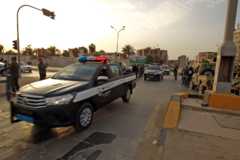
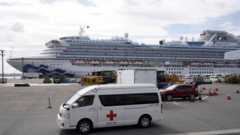
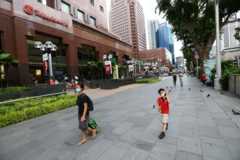
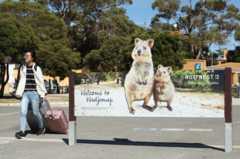




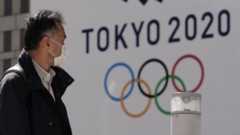
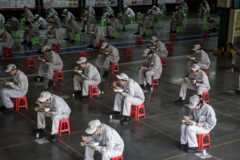


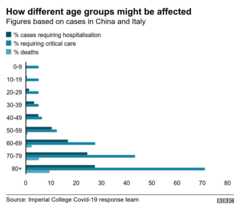
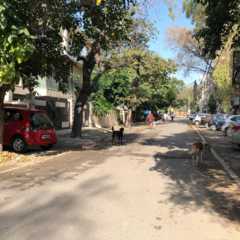

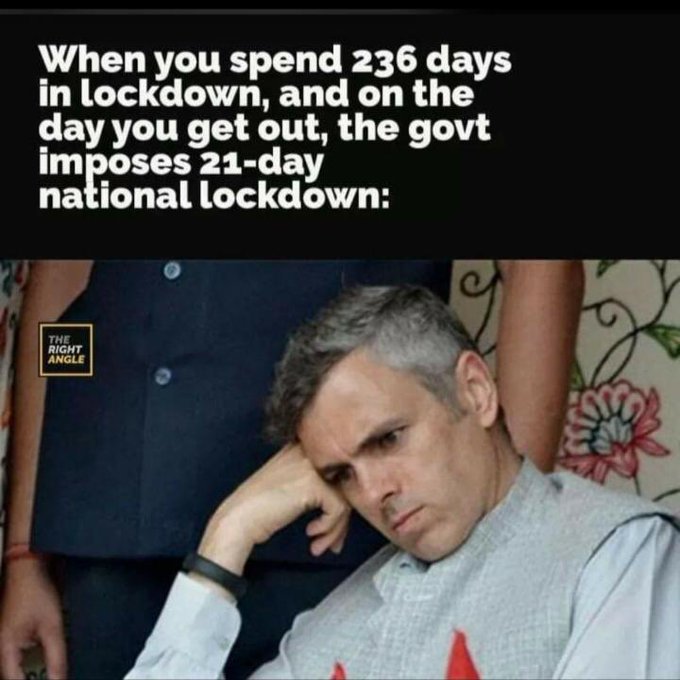

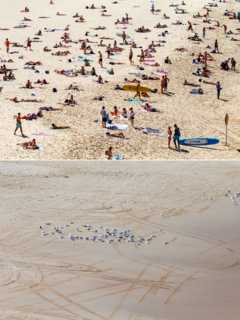
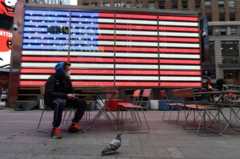
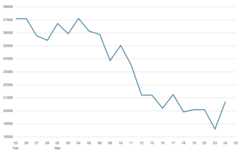

No comments:
Post a Comment